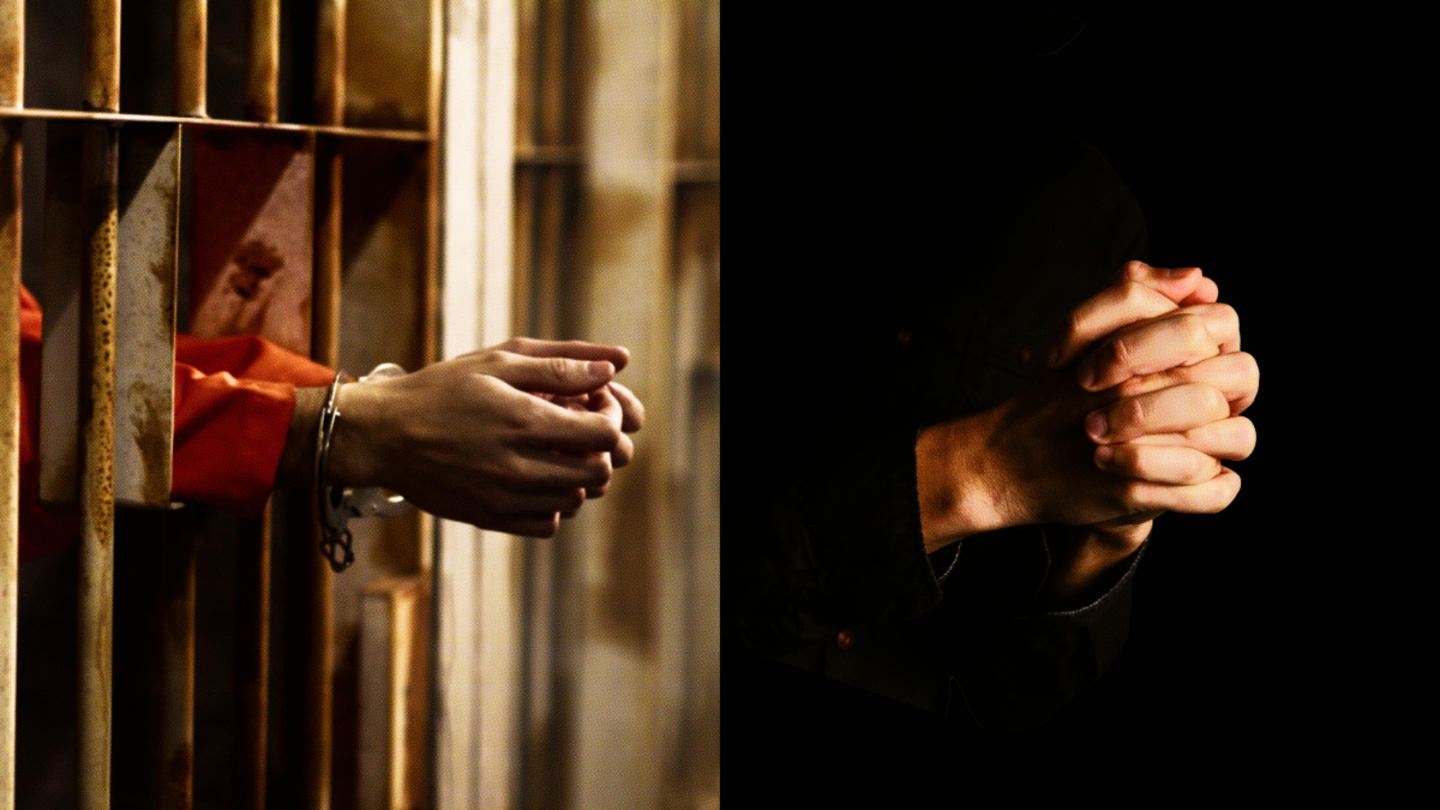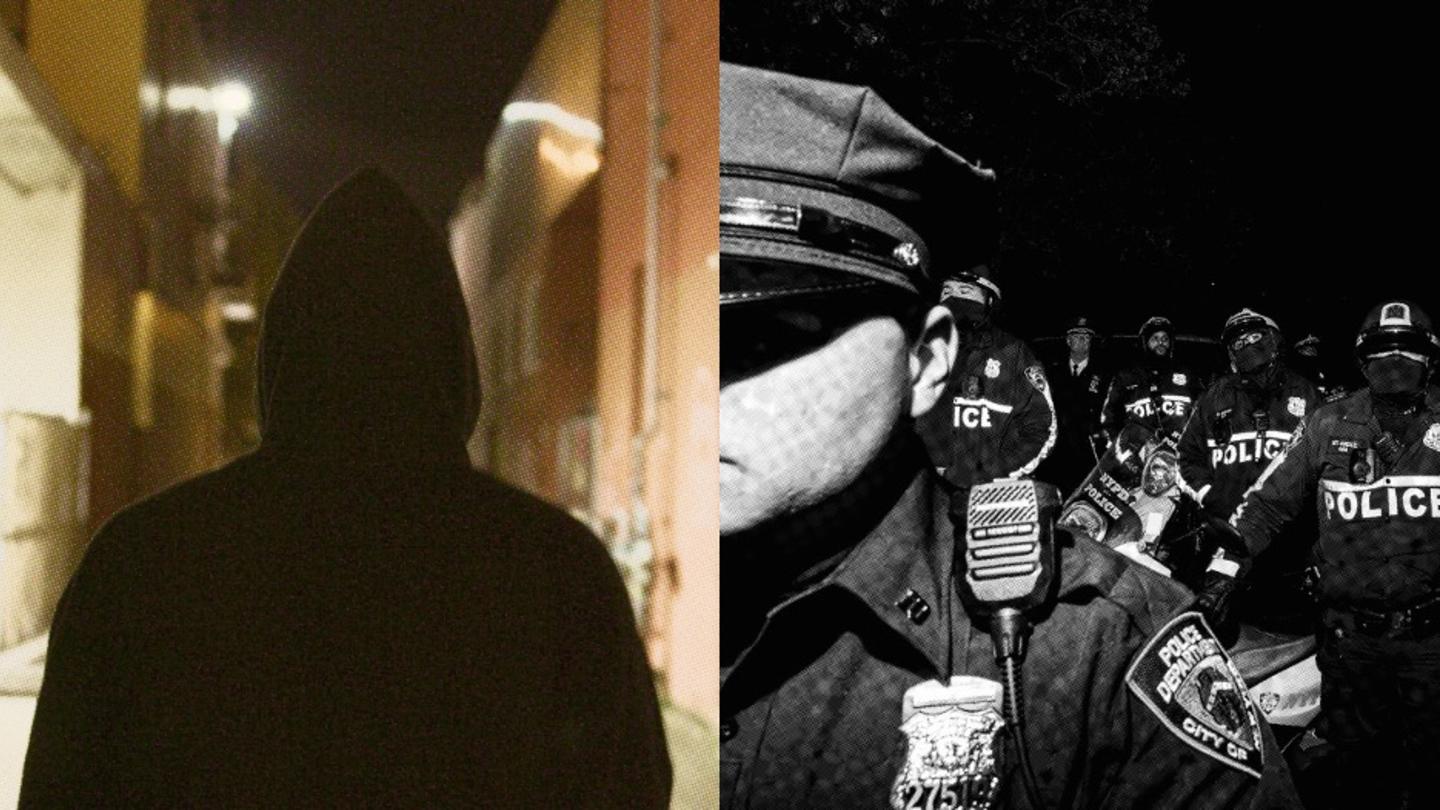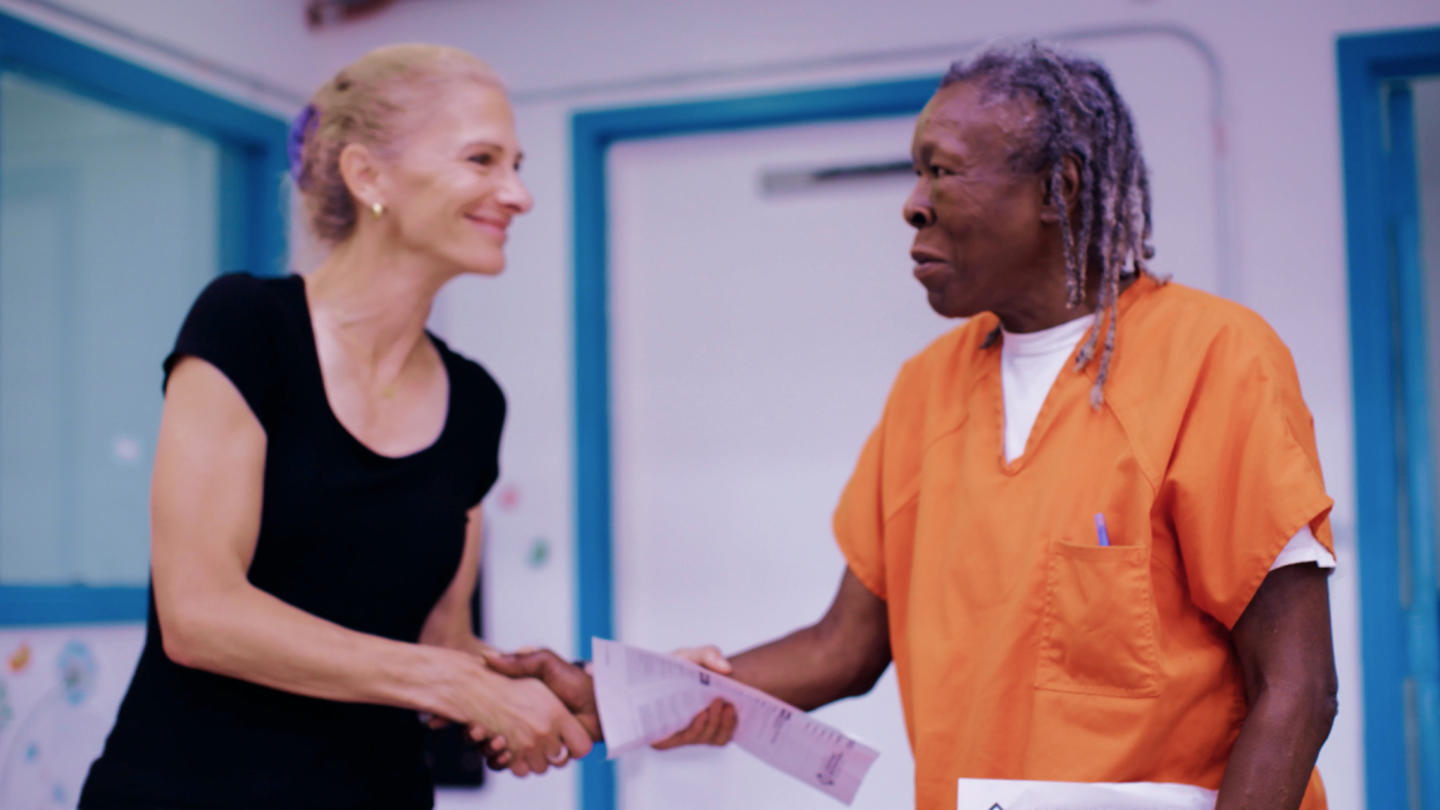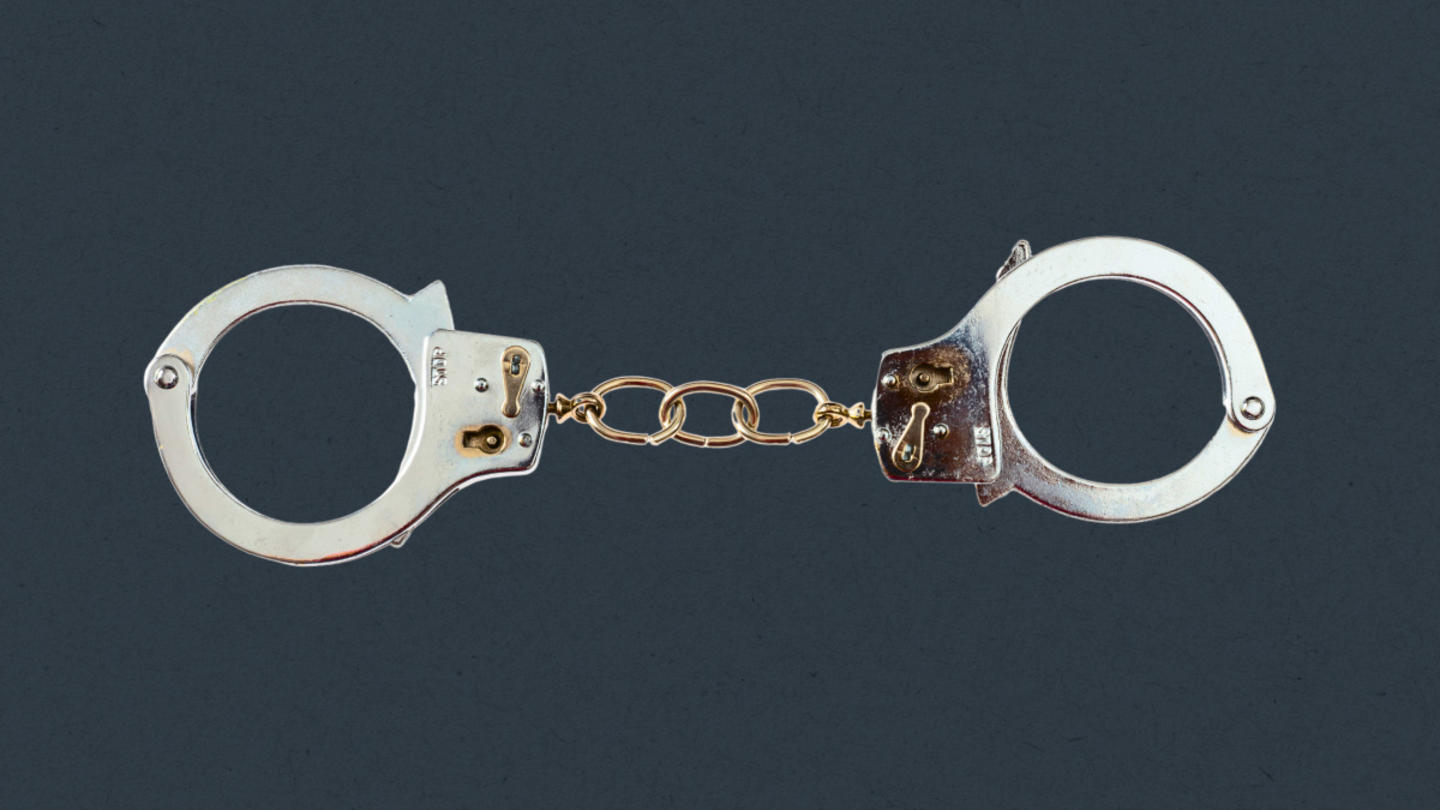Before discovering JUMPSTART Prison Ministry, Eric Waldorp lay in his prison cell for the first time, wondering how he had gotten there.
"I remember just feeling this overwhelming sensation of guilt, and this brokenness, where I realized that the person I was, was not the person I was supposed to be," he says.
His descent into crime had been gradual, the result of surrounding himself with the wrong people and making a series of wrong decisions from his teenage years on. As an adult, one part of him couldn't extract himself from his involvement in gangs and selling drugs. But another part had been able to build a good life for himself, with a wife, daughter, and successful career as a personal trainer. Eventually, his patterns of crime overtook his attempts at building an honest life, and he found himself incarcerated.
"What I thought I was able to rebuild, what I thought I was able to restructure, it was all gone," he says. "There was a strong level of hopelessness."
That's when he heard about JUMPSTART. With 5 years left to the end of his sentence, he became a mentor and an invaluable support to others on their way out.
"It really allowed me to see how many of us are the same, and how many of us need the same level of affirmation and comfort from another brother in the Lord."
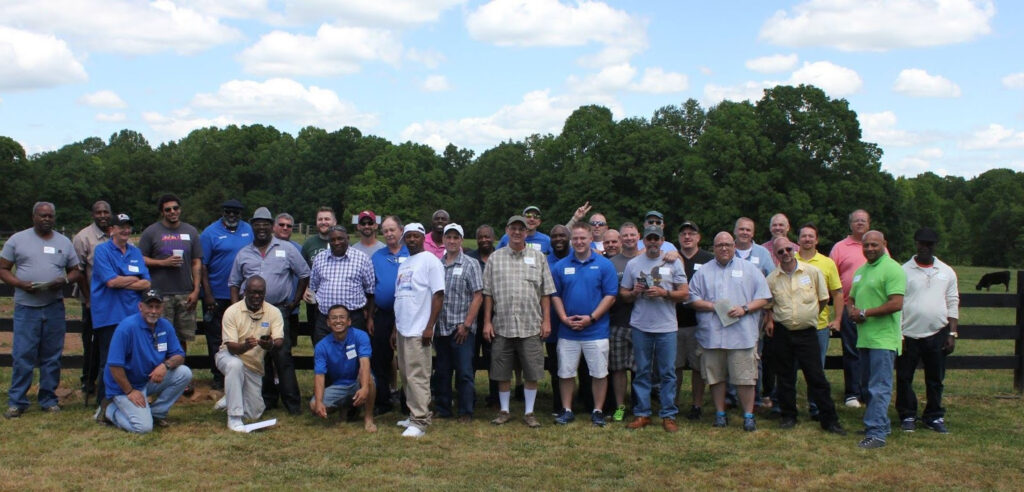
JUMPSTART Prison Ministry benefits individuals and their communities alike
There is a growing recognition that America's criminal justice system is failing to keep communities safe. Around 93% of all people who are incarcerated will ultimately be released; many are released "no better equipped to make successful, law-abiding lives for themselves than they were before they landed in prison."
While many rehabilitation programs help people while they're in prison or after they're released, JUMPSTART works on both sides of the prison fence. They begin working with individuals while they are still incarcerated to prepare them for life outside of prison, then continue to work with them as they adjust to outside society — and well beyond.
JUMPSTART's "Inside Program" covers a variety of topics for people before their release from prison. Besides logistical matters, like re-entering the workforce, individuals focus on nurturing character development, which will ultimately be the most critical predictor of their success outside of prison.
Through a 40-week discipleship process, individuals attend classes on worship, mentoring, serving others, living with purpose, and more. The program is structured around peer-to-peer assessments, meaning that individuals don't simply attend a class and listen to a lecture; they participate in small groups and are checked on regularly to make sure they are meeting growth milestones and holding themselves accountable.
This sets them up for positive outcomes after their release, when JUMPSTART's "Outside Program" begins. During this yearlong transition, the program helps them access affordable housing, comprehensive health care, reliable transportation, sustainable employment, and recovery programs for those who struggle with substance use.
"We really have to start from the bottom with them," says Dr. Cary Sanders, CEO of JUMPSTART. "Most of them only have the clothes on their back. So everything from identification to clothing to high basic hygiene items, housing, transportation, employment — we've got structure built around all of those things. So if someone comes in and has the right character and buys into the process, when they graduate from our program, they're able to buy a home. That's how comprehensive it is."
Setting up this foundation of stability allows individuals to continue on the path of growth they started while still in prison. Having basic necessities and a support system encourages their self-actualization and empowerment, and decreases the risk that they will fall back into crime.
The results speak for themselves: Of the 400 people who graduate from JUMPSTART Prison Ministry each year, 96% stay out of prison, permanently.
"It's naturally easier to to fundraise for children or for puppies," says Sanders. "It is difficult to get public support for people whose lives are off track. But when you break cycles of crime and addiction, not only does that individual and their family win, but our entire community wins. Now, because you've got someone who's now employed, they're a taxpayer. They're not committing crimes and that's a win for all of us."
One example of JUMPSTART's impact is in South Carolina, which thanks in part to the organization's programs now has the lowest level of recidivism in the nation. South Carolina Department of Corrections leader Bryan Stirling says that when other states ask what's behind that success, he encourages them to visit JUMPSTART and learn from their model themselves.
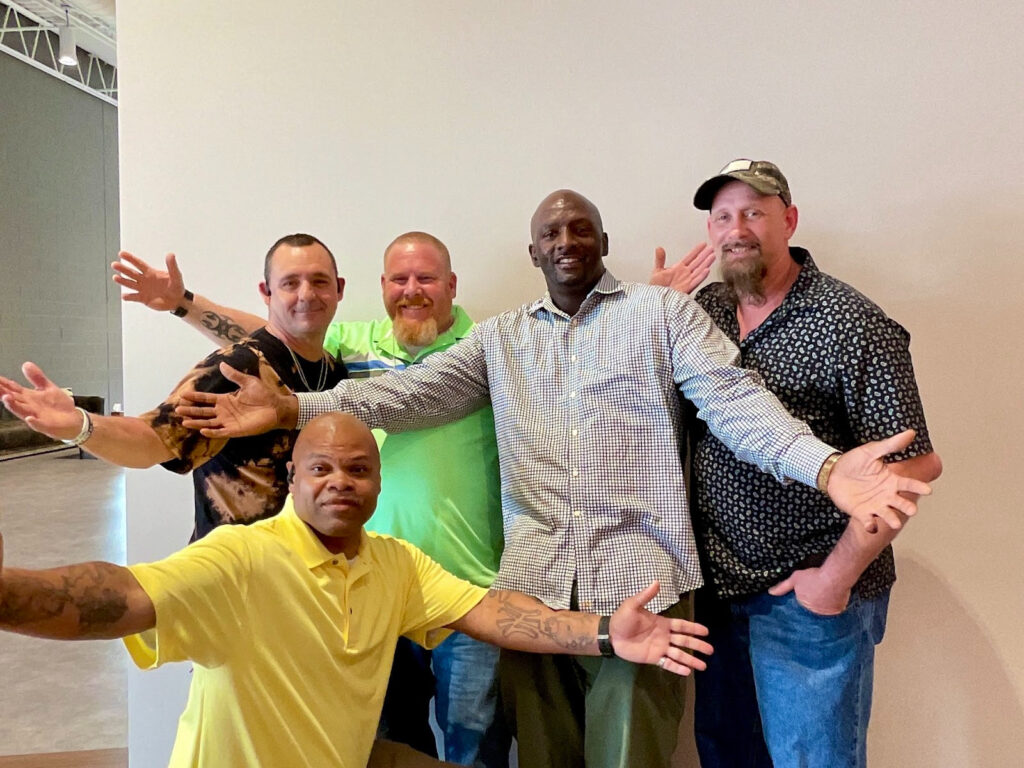
JUMPSTART prison ministry thrives through community
The crucial ingredient to JUMPSTART's program is relationships: not only fostering community, but a community built on longevity.
The prison ministry program is peer-led: volunteers work regularly with people in prison to accomplish the long, steady work of character development. Over 100 volunteers facilitate weekly classes in JUMPSTART, over the span of 40 weeks. Rather than come in a few hours a week like many other prison volunteers, they build sustained, daily relationships that will continue long after release.
This intimacy and familiarity helps volunteers know each person's unique challenges and strengths closely, thus equipping them to best help on a case-by-case basis. Accordingly, their post-incarceration development includes individual case management and mentoring, becoming engaged and active in their communities, and activities centered around recreational and spiritual growth.
Through developing these peer-to-peer relationships, and through becoming a member of an outside community, JUMPSTART participants are able to relearn a sense of dignity — something often lost after years of incarceration.
"I would say it's rare that we have someone who comes to us that isn't in tears the first day of their release," says Sanders. "Because they just can't believe that people actually have put this in place to care for them. They felt like their life was over. And now they've got a room that's as nice as anything they've ever had."
JUMPSTART's prison ministry model grows from the bottom-up
JUMPSTART is currently active in South Carolina, Georgia, North Carolina, and Ohio, but doesn't necessarily plan to expand. Instead, they hope to grow only where bottom-up, individualized solutions are a good fit, and where their unique system fits in with the needs of the local population.
"We're not trying to push the program," says Sanders. "We're not saying, 'Hey, we've got something that everybody else needs to do. But when other states come to us and say, 'Hey, we believe in this model,' we do try to coach them, so they can implement the model in their own state."
The most ambitious and exciting project on their horizon is the Transitional Village that JUMPSTART is building in South Carolina. Once completed, it will be a community of 22 homes, able to house 96 graduates to live together upon release. Doing so will provide support to lean on and draw from as individuals navigate their reentry into society.
"It's a neighborhood that's built around the ideas of love and encouragement and accountability," says Sanders. "We are providing people with a dignified place to live … The neighborhood is a place of stability and that restores their dignity and provides them that place where they have a proven pathway to be a productive member of the community."
JUMPSTART is supported by Stand Together Foundation, which partners with the nation's most transformative nonprofits to break the cycle of poverty.
Learn more about Stand Together's criminal justice reform efforts.
